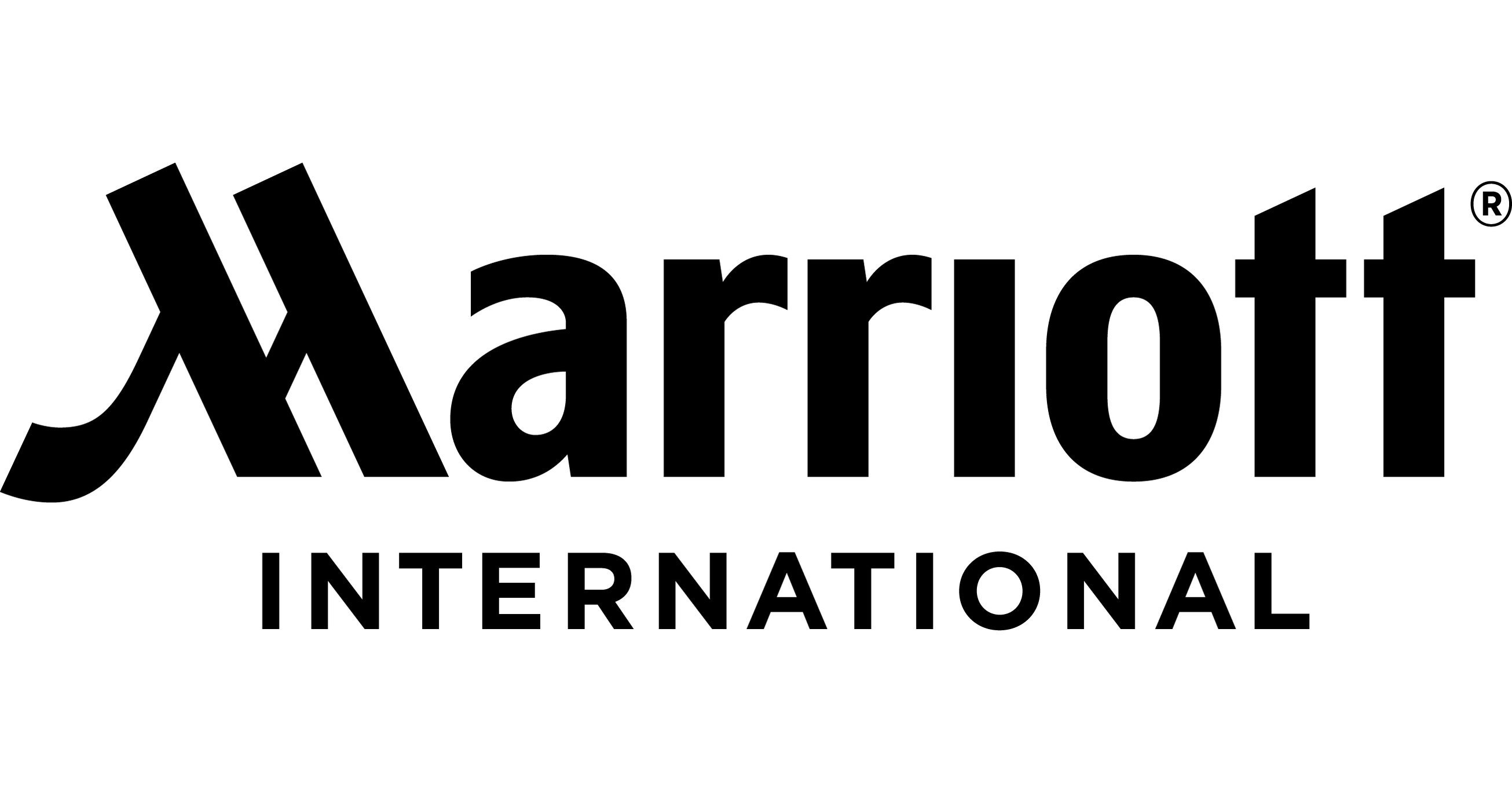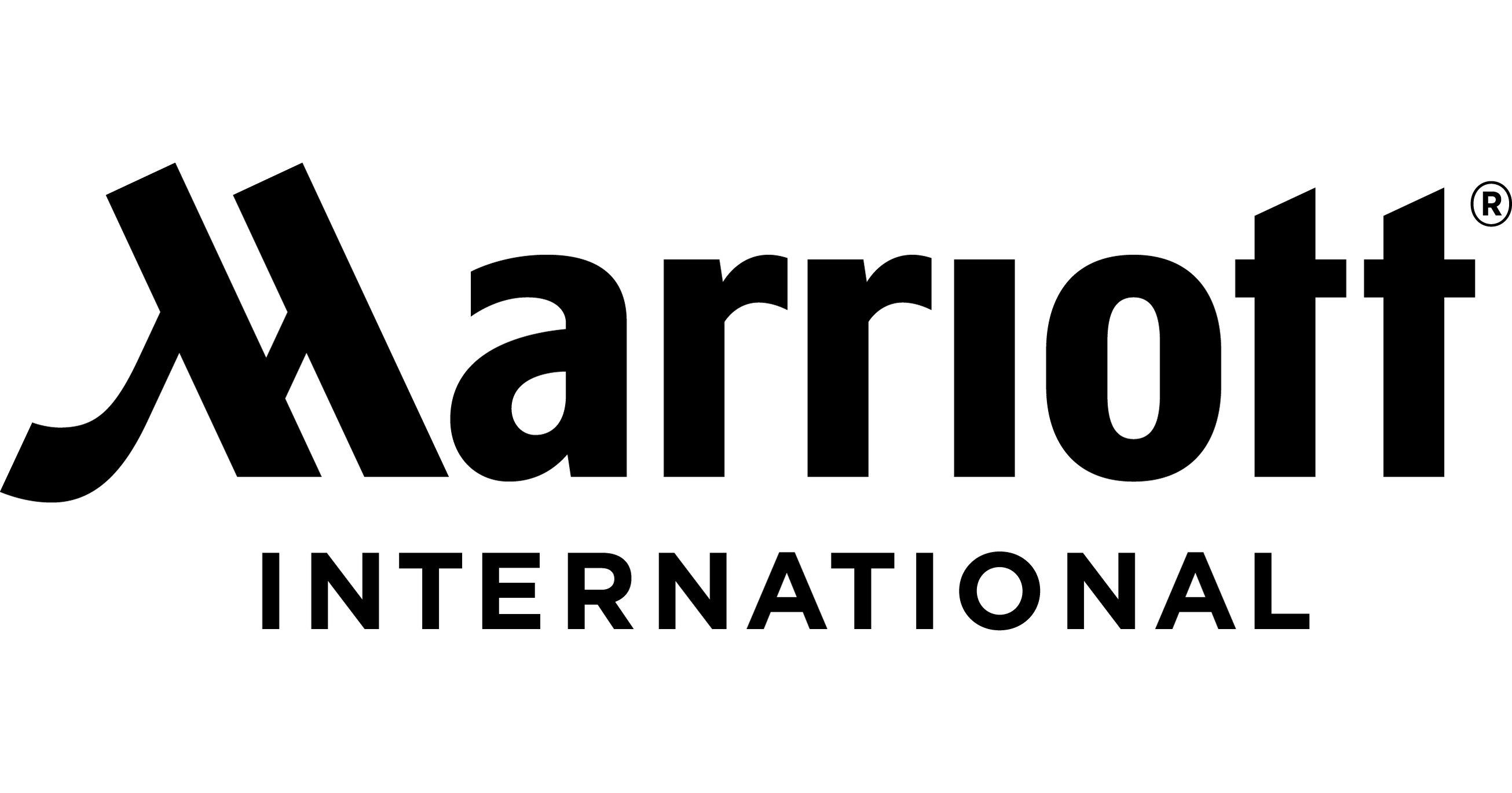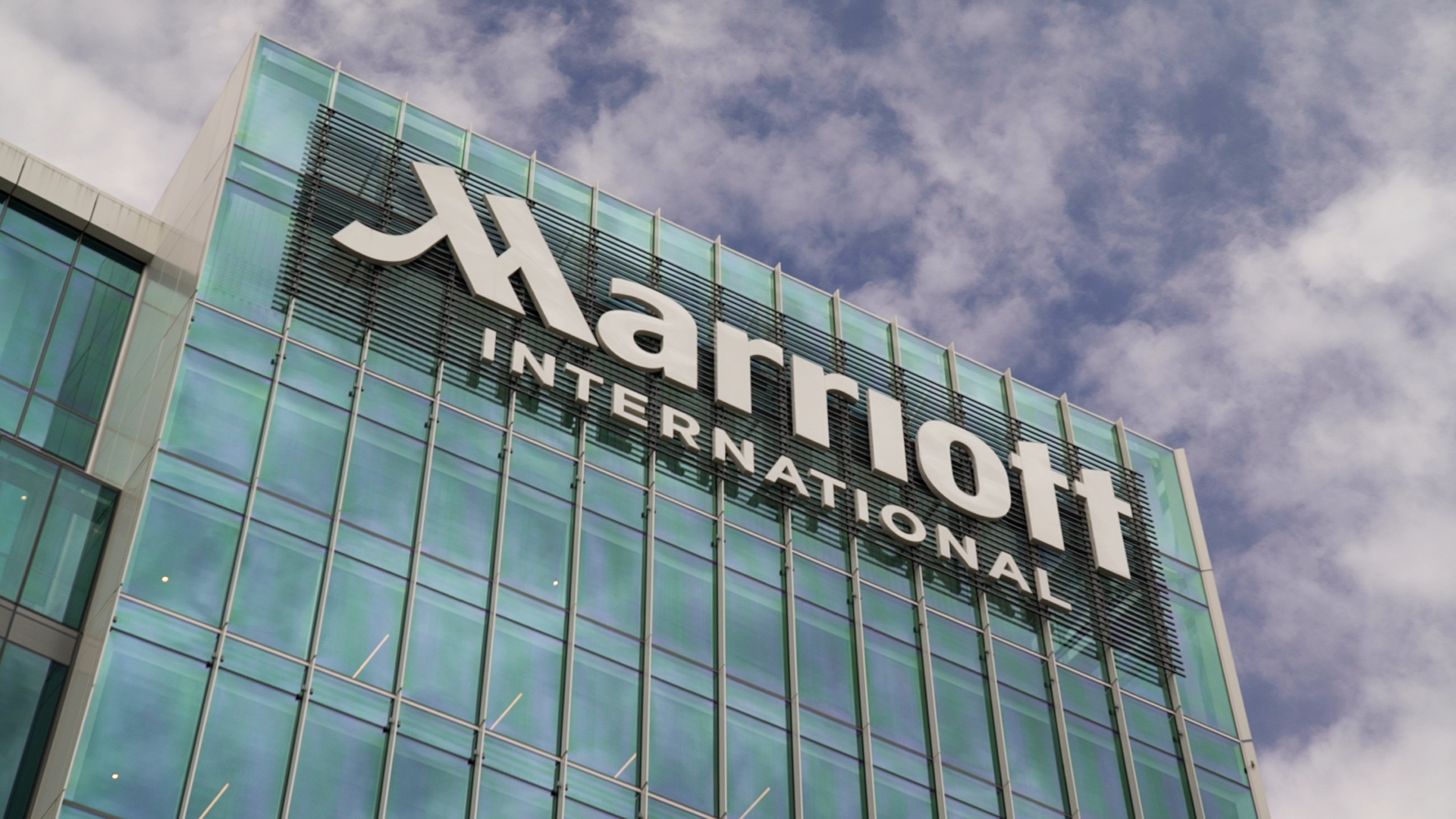Marriott International's (NASDAQ: MAR) Strong Earnings Report Highlights

- Earnings Per Share (EPS) of $2.32, surpassing the estimated $2.25, driven by strong travel demand and the strength of its brand portfolio.
- Revenue reached approximately $6.26 billion, with a year-over-year increase from $5.98 billion, despite being slightly below the Zacks Consensus Estimate.
- Global Revenue Per Available Room (RevPAR) rose by 4.1%, with notable growth in both the U.S. and international markets.
Marriott International (NASDAQ: MAR) is a leading global hospitality company known for its extensive portfolio of hotels and related lodging facilities. The company operates under various brand names, catering to different market segments. Marriott's competitors include Hilton Worldwide Holdings and Hyatt Hotels Corporation. The company focuses on a fee-based business model, which has proven effective in driving profitability.
On May 6, 2025, Marriott reported earnings per share (EPS) of $2.32, surpassing the estimated $2.25. This performance was supported by strong travel demand and the strength of its brand portfolio. The company's fee-based business model also played a crucial role in achieving these results. Despite a slight revenue shortfall, Marriott's operational efficiency improved, as indicated by a year-over-year increase in Revenue Per Available Room (RevPAR).
Marriott's revenue for the quarter was approximately $6.26 billion, slightly below the Zacks Consensus Estimate by 0.18%. However, this figure represents an increase from the $5.98 billion reported a year ago. The company's global RevPAR rose by 4.1%, with the U.S. and Canada experiencing a 3.3% rise and international markets seeing a 5.9% growth. This growth highlights Marriott's ability to capitalize on the ongoing travel demand.
The company's net income for the quarter was $665 million, with an adjusted net income of $645 million. Marriott's adjusted EBITDA reached $1.217 billion, reflecting its strong financial position. The company added approximately 12,200 net rooms, marking a 4.6% growth from the end of the first quarter of 2024. Marriott's worldwide development pipeline expanded to around 3,800 properties and over 587,000 rooms, indicating a 7.4% year-over-year increase.
Marriott's financial metrics reveal a price-to-earnings (P/E) ratio of approximately 29.58, indicating the price investors are willing to pay for each dollar of earnings. The company's price-to-sales ratio stands at about 2.76, while the enterprise value to sales ratio is around 3.35. These figures reflect Marriott's market value compared to its revenue and total value relative to its sales. Despite a debt-to-equity ratio of approximately -5.09, Marriott continues to generate cash from its operations, as evidenced by an enterprise value to operating cash flow ratio of approximately 30.63.
| Symbol | Price | %chg |
|---|---|---|
| BUVA.JK | 775 | 3.87 |
| CLAY.JK | 2810 | 0 |
| MINA.JK | 178 | 1.12 |
| ARTA.JK | 3120 | 0.32 |

Marriott International Enhances Luxury Offerings with Cinnamon Beach Vacations Partnership
- Marriott International (NASDAQ:MAR) is expanding its luxury rental portfolio through a partnership with Cinnamon Beach Vacations on the Homes & Villas by Marriott Bonvoy platform.
- The company reported earnings per share of $2.65 and revenue of $6.74 billion, surpassing estimates and indicating strong financial health to support new ventures.
- Despite a slight decrease in stock price to $265.20, Marriott's market capitalization of approximately $71.99 billion reflects investor confidence in its long-term growth prospects.
Cinnamon Beach Vacations is enhancing its offerings by adding luxury and premium rental properties to the Homes & Villas by Marriott Bonvoy platform. This strategic move is set to bolster Marriott International's (NASDAQ:MAR) portfolio, providing a wider range of upscale accommodations. By doing so, Marriott aims to attract more high-end travelers, strengthening its foothold in the luxury rental market.
Marriott's recent financial performance supports this strategic expansion. On August 5, 2025, the company reported earnings per share of $2.65, surpassing the estimated $2.61. This indicates strong financial health, which is crucial for supporting new ventures like the partnership with Cinnamon Beach Vacations. The actual revenue of $6.74 billion also exceeded expectations, further highlighting Marriott's robust financial position.
Despite the positive earnings report, Marriott's stock price is currently $265.20, reflecting a slight decrease of 0.51% or $1.35. The stock has traded between $264.63 and $268.62 today, showing some volatility. However, the company's market capitalization remains strong at approximately $71.99 billion, indicating investor confidence in Marriott's long-term growth prospects.
Over the past year, Marriott's stock has experienced fluctuations, reaching a high of $307.52 and a low of $205.40. This volatility is not uncommon in the hospitality industry, especially as companies navigate post-pandemic recovery and expansion efforts. The trading volume for the day is 1,083,173 shares, reflecting active investor interest in Marriott's stock on the NASDAQ exchange.

Marriott Narrows Outlook Amid Government Cuts, Still Tops Q2 Estimates
Marriott International (NASDAQ:MAR) narrowed its full-year earnings outlook, citing headwinds from U.S. government spending cuts and softening business travel, though second-quarter results exceeded analyst expectations.
The company reported adjusted earnings of $2.65 per share, up from $2.50 a year ago and ahead of the $2.61 consensus. Revenue increased 4.7% to $6.74 billion, also beating forecasts.
Revenue per available room (RevPAR) was flat in the U.S. and Canada, as weaker domestic travel was balanced by luxury demand. Globally, RevPAR rose 1.5%, with Asia-Pacific, Europe, the Middle East, and Africa showing strong gains.
CEO Anthony Capuano called the quarter “strong,” despite persistent macroeconomic uncertainty. The company’s full-year EBITDA guidance was slightly narrowed to $5.31 billion–$5.40 billion from the prior range of $5.29 billion–$5.43 billion.

Marriott International's (NASDAQ: MAR) Strong Earnings Report Highlights
- Earnings Per Share (EPS) of $2.32, surpassing the estimated $2.25, driven by strong travel demand and the strength of its brand portfolio.
- Revenue reached approximately $6.26 billion, with a year-over-year increase from $5.98 billion, despite being slightly below the Zacks Consensus Estimate.
- Global Revenue Per Available Room (RevPAR) rose by 4.1%, with notable growth in both the U.S. and international markets.
Marriott International (NASDAQ: MAR) is a leading global hospitality company known for its extensive portfolio of hotels and related lodging facilities. The company operates under various brand names, catering to different market segments. Marriott's competitors include Hilton Worldwide Holdings and Hyatt Hotels Corporation. The company focuses on a fee-based business model, which has proven effective in driving profitability.
On May 6, 2025, Marriott reported earnings per share (EPS) of $2.32, surpassing the estimated $2.25. This performance was supported by strong travel demand and the strength of its brand portfolio. The company's fee-based business model also played a crucial role in achieving these results. Despite a slight revenue shortfall, Marriott's operational efficiency improved, as indicated by a year-over-year increase in Revenue Per Available Room (RevPAR).
Marriott's revenue for the quarter was approximately $6.26 billion, slightly below the Zacks Consensus Estimate by 0.18%. However, this figure represents an increase from the $5.98 billion reported a year ago. The company's global RevPAR rose by 4.1%, with the U.S. and Canada experiencing a 3.3% rise and international markets seeing a 5.9% growth. This growth highlights Marriott's ability to capitalize on the ongoing travel demand.
The company's net income for the quarter was $665 million, with an adjusted net income of $645 million. Marriott's adjusted EBITDA reached $1.217 billion, reflecting its strong financial position. The company added approximately 12,200 net rooms, marking a 4.6% growth from the end of the first quarter of 2024. Marriott's worldwide development pipeline expanded to around 3,800 properties and over 587,000 rooms, indicating a 7.4% year-over-year increase.
Marriott's financial metrics reveal a price-to-earnings (P/E) ratio of approximately 29.58, indicating the price investors are willing to pay for each dollar of earnings. The company's price-to-sales ratio stands at about 2.76, while the enterprise value to sales ratio is around 3.35. These figures reflect Marriott's market value compared to its revenue and total value relative to its sales. Despite a debt-to-equity ratio of approximately -5.09, Marriott continues to generate cash from its operations, as evidenced by an enterprise value to operating cash flow ratio of approximately 30.63.

Marriott Shares Slip 3% as Q3 Earnings Miss Estimates
Marriott International (NASDAQ:MAR) reported third-quarter earnings below analyst expectations and trimmed its full-year forecast, resulting in a more than 3% drop in share intra-day today. The hotel chain recorded adjusted earnings per share of $2.26, just missing the $2.31 consensus, while revenue reached $6.26 billion, narrowly under the anticipated $6.27 billion.
For 2024, Marriott lowered its earnings guidance to $9.19 to $9.27 per share, down from the previous range of $9.23 to $9.40, and below Wall Street's consensus of $9.36. Despite the adjusted forecast, Marriott saw encouraging growth in key performance indicators, with global comparable systemwide RevPAR rising by 3% year-over-year. International RevPAR growth led with a 5.4% increase, while U.S. & Canada RevPAR was up by 2.1%.

Marriott Shares Slip 3% as Q3 Earnings Miss Estimates
Marriott International (NASDAQ:MAR) reported third-quarter earnings below analyst expectations and trimmed its full-year forecast, resulting in a more than 3% drop in share intra-day today. The hotel chain recorded adjusted earnings per share of $2.26, just missing the $2.31 consensus, while revenue reached $6.26 billion, narrowly under the anticipated $6.27 billion.
For 2024, Marriott lowered its earnings guidance to $9.19 to $9.27 per share, down from the previous range of $9.23 to $9.40, and below Wall Street's consensus of $9.36. Despite the adjusted forecast, Marriott saw encouraging growth in key performance indicators, with global comparable systemwide RevPAR rising by 3% year-over-year. International RevPAR growth led with a 5.4% increase, while U.S. & Canada RevPAR was up by 2.1%.

Wells Fargo Maintains Equal-Weight Rating on Marriott International, Inc. (NASDAQ:MAR)
- Wells Fargo has maintained its Equal-Weight rating on Marriott International, Inc. (NASDAQ:MAR) and raised the price target to $261 from $238.
- Marriott and MGM Resorts International plan to convert a Las Vegas Strip property into the W Las Vegas, enhancing Marriott's luxury offerings.
- The "Connect Responsibly with Marriott Bonvoy Events" program has been launched to incorporate sustainability into events, showcasing Marriott's commitment to responsible practices.
On October 22, 2024, Wells Fargo maintained its rating for Marriott International, Inc. (NASDAQ:MAR) at Equal-Weight, advising investors to hold their positions. At the time, Marriott's stock price was $264.97. Wells Fargo also raised Marriott's price target to $261 from $238, as highlighted by TheFly. This suggests a cautious optimism about Marriott's future performance.
Marriott International is a leading global hospitality company with a diverse portfolio of brands. Recently, Marriott and MGM Resorts International announced plans to convert a property on the Las Vegas Strip into the W Las Vegas, part of the W Hotels brand. This move is part of a strategic licensing agreement between the two companies, initially announced in July 2023. The conversion is expected to be completed later this year, enhancing Marriott's luxury offerings.
The collaboration with MGM Resorts is a testament to Marriott's strong brand portfolio and distribution channels, as noted by Steve Zanella, President of MGM Resorts Operations. The new W Las Vegas aims to provide a luxury lifestyle experience recognized globally, aligning with Marriott's strategy to expand its high-end offerings and attract affluent travelers.
In addition to its expansion efforts, Marriott has launched the "Connect Responsibly with Marriott Bonvoy Events" program. This initiative helps meeting planners incorporate sustainability into their events at participating Marriott Bonvoy hotels. The program offers Meeting Impact Reports and options to purchase carbon credits, promoting responsible practices and enhancing in-person connections.
Marriott's stock has seen a slight decrease of 0.24%, with a change of $0.63, trading between $263.26 and $266.44 today. Over the past year, the stock has fluctuated between a high of $266.58 and a low of $180.75. With a market capitalization of approximately $74.60 billion and a trading volume of 843,755 shares, Marriott remains a significant player in the hospitality industry.







